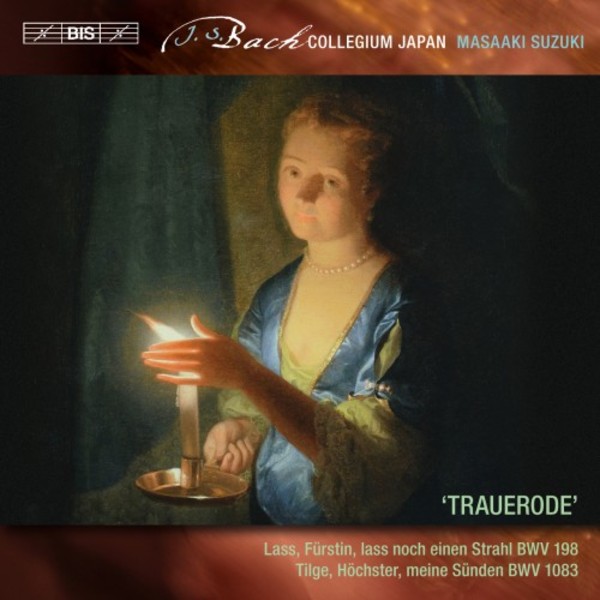
JS Bach - Secular Cantatas Vol.6
£13.25 £10.60
save £2.65 (20%)
special offer ending 27/05/2024
In stock - available for despatch within 1 working day
Despatch Information
This despatch estimate is based on information from both our own stock and the UK supplier's stock.
If ordering multiple items, we will aim to send everything together so the longest despatch estimate will apply to the complete order.
If you would rather receive certain items more quickly, please place them on a separate order.
If any unexpected delays occur, we will keep you informed of progress via email and not allow other items on the order to be held up.
If you would prefer to receive everything together regardless of any delay, please let us know via email.
Pre-orders will be despatched as close as possible to the release date.
Label: BIS
Cat No: BIS2181
Format: Hybrid SACD
Number of Discs: 1
Genre: Vocal/Choral
Release Date: 1st April 2016
Contents
Works
Cantata BWV53 'Schlage doch, gewunschte Stunde' (Georg Melchior Hoffmann)Cantata BWV198 'Lass, Furstin, lass noch einen Strahl' (Trauerode)
Psalm 51 from Pergolesi's Stabat Mater 'Tilge, Hochster, meine Sunden', BWV1083
Artists
Joanne Lunn (soprano)Carolyn Sampson (soprano)
Robin Blaze (countertenor)
Gerd Turk (tenor)
Dominik Worne (bass)
Bach Collegium Japan
Conductor
Masaaki SuzukiWorks
Cantata BWV53 'Schlage doch, gewunschte Stunde' (Georg Melchior Hoffmann)Cantata BWV198 'Lass, Furstin, lass noch einen Strahl' (Trauerode)
Psalm 51 from Pergolesi's Stabat Mater 'Tilge, Hochster, meine Sunden', BWV1083
Artists
Joanne Lunn (soprano)Carolyn Sampson (soprano)
Robin Blaze (countertenor)
Gerd Turk (tenor)
Dominik Worne (bass)
Bach Collegium Japan
Conductor
Masaaki SuzukiAbout
The cantata BWV 198, often called the Trauerode (funeral ode) was performed at an imposing ceremony in Leipzig's Paulinerkirche in 1727, held in order to mark the passing of Christiane Eberhardine, wife of Augustus the Strong, Elector of Saxony and King of Poland. Compared to BWV 198, the circumstances surrounding Tilge, Höchster, meine Sünden, BWV 1083, are far more uncertain: why Bach at a late stage in his life (around 1746) decided to make an arrangement of Pergolesi's famous Stabat mater isn't known. In the case of the Pergolesi arrangement, the text is religious – a German paraphrase of the penitential Psalm 51 replaces the medieval sequence about Mary mourning Christ at the cross – but the work doesn't seem to have had any liturgical purpose.
Error on this page? Let us know here
Need more information on this product? Click here